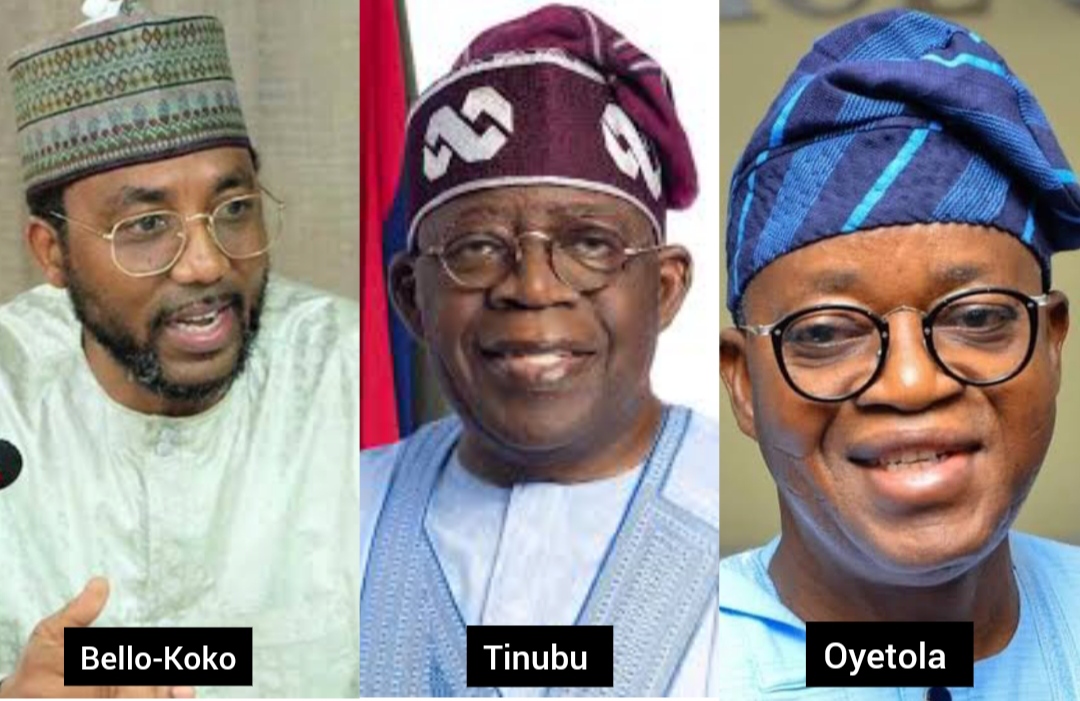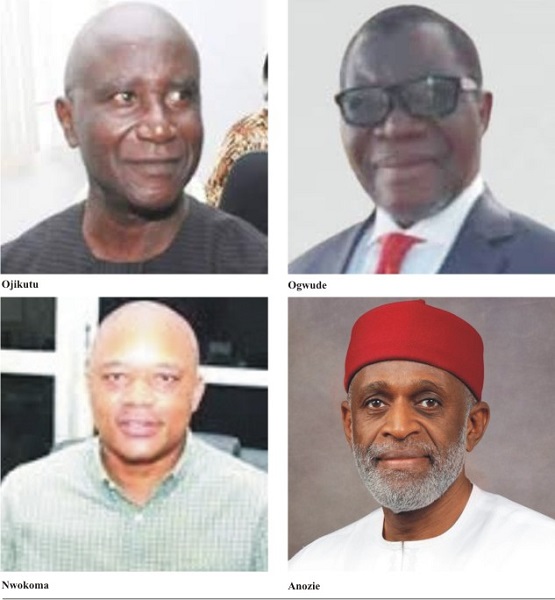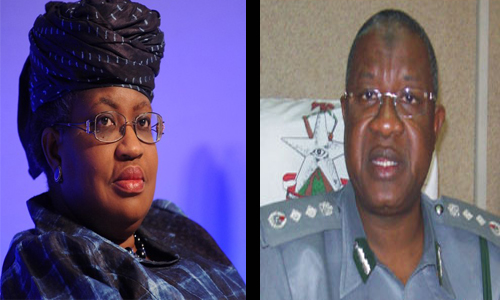NCAA: Empowering The Regulator
 It was the accidents of 2005 and 2006 that prompted the federal government to revamp the aviation industry to bring an end to the yearly carnage of Nigerians. To end the recurrent accidents, the regulatory authority has to be autonomous to effectively carry out its responsibility of ensuring that the airlines abide by international safety standards.
It was the accidents of 2005 and 2006 that prompted the federal government to revamp the aviation industry to bring an end to the yearly carnage of Nigerians. To end the recurrent accidents, the regulatory authority has to be autonomous to effectively carry out its responsibility of ensuring that the airlines abide by international safety standards.
This was why there was spirited effort to make NCAA autonomous in 2006 when the Civil Aviation Act was passed into law.
Abiding by this standard means that airlines must operate aircraft that are airworthy; they must have certified pilots that are qualified to operate the aircraft; they must have qualified engineers and standard maintenance facility either locally or overseas. They must also carry out compulsory training of flight and cabin crew, regular maintenance of their aircraft and acquisition of such aircraft must be supervised and certified before they are brought into the country for service.
In addition, NCAA should be free to regulate other agencies, including the Federal Airports Authority, the Nigerian Airspace Management Agency (NAMA) and the Nigeria Meteorological Agency (NIMET). These agencies were expected to have the right facilities, maintain given standards and provide effective services.
Before the air crashes reached a climax in 2005 and 2006 when the country lost over 500 persons, airlines were not being effectively checked in their operations. They brought in aircraft that were not airworthy, recruited not well trained pilots and their aircraft were poorly maintained, hence the many air crashes.
Weak NCAA
Since 2006, so much has been achieved. Industry analysts agree that in terms of safety standard Nigeria has recorded significant achievement. This was exemplified by the fact that the country passed the International Civil Aviation Organisation audit and few years later earned the highly sought after US Federal Aviation Administration Category 1 safety status, which indicated that Nigeria has met very high standard of safety and which also enabled US registered aircraft to operate commercial service into the country.
But despite this improvement, Nigeria suffered one of the worst air disasters in 2012 when Dana Air flight 092 crashed in Lagos and killed all the 153 persons on board and in the following year a chartered Associated Aviation flight crashed on take-off at the Murtala Muhammed International Airport, Lagos. The Dana crash was deemed the worst air disaster that year in the world.
Since the 2013 accident the industry has not recorded a major incident the following year and so far in 2015 the country has maintained clean record. But recently some industry stakeholders said NCAA is becoming weaker and unable to effectively carry out its responsibilities, but other concerned industry operators are questioning the yardstick with which the former described the regulatory authority as weak besides the fact that it suffers regulatory interference from the Ministry of Aviation, a behaviour that has subsisted before and after 2006 the Civil Aviation Act was passed into law.
Many industry operators said the worst period of NCAA in recent time was when it was managed by acting Director-Generals who did not have the power to take critical decisions and who knew they would not be there for a long time and took decisions that nearly jeopardised the regulatory body. The operators also said besides the interferences of the Ministry of Aviation, NCAA is being run professionally; therefore to make it absolutely effective it must secure its full autonomy from the Ministry.
An NCAA official said the Authority almost became bankrupt and found it difficult to pay salaries of staff and carry out other responsibilities because of financial demands by the ministry and reckless management of the agency under acting Director-Generals that held sway before the appointment of the present Director-General, Captain Usman Mukhtar.
“But now there is no more free money. The loopholes are closed and we are getting out of the financial doldrums. Training has been streamlined and critical ones are approved with set objectives which include acquisition of skills, upgrade of skills by the technical staff. Not all the trainings are allowed to be done overseas. Some are done locally in order to meet the budget; only higher trainings are done overseas now,” said the official.
Economic Regulation
Also industry analysts believe that a fully autonomous NCAA would be able to carry out economic regulation of the airlines without interferences from the Ministry of Aviation. In fact, many in the industry believe the aviation agencies would do better without interferences from the Ministry of Aviation.
“From 2006 to 2012 there was no economic regulation because the focus was on safety. All the employment done in NCAA was to boost the departments that would enforce and ensure safety air operation.
Economic regulation and consumer protection were relegated to the background. It was during the controversy triggered by high charges from British Airways and Virgin Atlantic which were accused of exploiting Nigerians that made government to realise that there really was no law to check such excesses from the airlines. This was what gave birth to the Nigerian Civil Aviation Regulation Act (NCAR) in October 2012,” explained industry analyst.
Part 18 of the NCAR deals with economic regulation of the industry while part 19 deals with consumer protection with sanctions. In other words, any airline that breaches any of the regulations on consumer protection is sanctioned.
“If you fail to pay your staff you can face sanctions; even to owe agencies, but some of these laws are not carried out because of interferences from the Ministry of Aviation. So NCAA is not weak; it is just that the Ministry cannot allow it to do its duties. So it is facing external interferences from the Ministry. This is the reason why many people want the Ministry to be scrapped so that NCAA will be strengthened to face its responsibilities.
“Ideally delays and cancelations should be sanctioned. After two hours of delay, a passenger has the right to demand and get his fare back. The truth is that effective economic regulation will ground the airlines and force them to operate by the book,” said an industry source.
BASA and Commercial Negotiations
Many industry analysts argue that it is the NCAA and the Nigerian airlines that should negotiate Bilateral Air Service Agreement (BASA) and commercial agreement with foreign airlines. While NCAA negotiates BASA on behalf of government, Nigerian airlines in conjunction with NCAA should negotiate commercial agreement with foreign airlines.
“BASA is also under economic regulation of NCAA but the Ministry of Aviation took over BASA. NCAA and the airlines should determine entry points of foreign airlines into the country. The Ministry does not have the right personnel to do this and because of the parochial interest of officers there, they have signed many things that have injured the country,” airline operator told newsmen.
Safety
Industry analyst, Chris Aligbe said so far NCAA has done very well in the area of safety, noting that Nigerian has not experienced many fatalities recently and “we have not even experienced many air returns as we did during the interregnum between 2012 and 2014 when NCAA was under acting Director Generals. We should continue to improve. There is no stopping point when it comes to safety in aviation.”
Restructuring
Aligbe said what NCAA needs now is restructuring because at the time the Authority secured the Civil Aviation Act the focus was on safety in order to stop the crashes.
“The problem of structuring came to the fore during Dana Air crash. There is need for greater focus on economic regulation oversight function because when part 18 and 19 of the Nigeria Civil Aviation Regulation came into force in 2012, there was no effective manpower in these areas. There is enough manpower in the area of safety, well trained technical personnel made up of experienced people who had worked with the defunct Nigeria Airways Limited. We have never had the culture of economic oversight or economic regulation of the airlines or the industry,” Aligbe said.
Recently the Director Airworthiness Standards of NCAA, Benedict Adeyileka said under the present Director General the Authority has continued to improve on safety by subjecting pilots and engineers of airlines to rigorous assessment and profiling, adding that this is a regulatory requirement, which it has been strictly enforced to put an end to preventable accidents that may occur due to negligence, mechanical errors and other problems that could be caused by manpower inefficiency.
Abiding by the Rules
Adeyileka disclosed that the regulatory authority makes sure that airlines abide by the rules, which follow Air Operator Certificate (AOC) guidelines and the Authority carriers its oversight functions.
“So we make sure that as they continue to operate they do not drop the standards and that in their operations they comply with the daily safety routines and luckily we have the voluntary reporting system, so pilot report incidents in the course of their flights and we advise the airlines on the way forward. I give kudos to the airlines. Credit must be given to them for the efforts they make to ensure that they maintain the standards; acknowledging that it is their responsibility to ensure their aircraft is airworthy but we must commend them because they are ever willing to comply,” Adeyileka said.
He said NCAA ensures that the airlines have the recommended number of personnel, especially in the engineering depart and also the number of pilots and carries out periodic ramp inspection of airline operations.
“We make sure they have minimum number of engineers and pilots and we carry out periodic ramp inspection and on-the-spot checks. But the Nigerian airlines are always alert because there is enough awareness. It will be difficult if the airlines are not aware but the Nigerian airlines are aware of what to do. That is why they deserve some credit,” Adeyileka said.
With full autonomy and under a competent and experienced Director-General, it is expected that NCAA should not only ensure safe air operation; but should also ensure that Nigerian airlines are viable.








